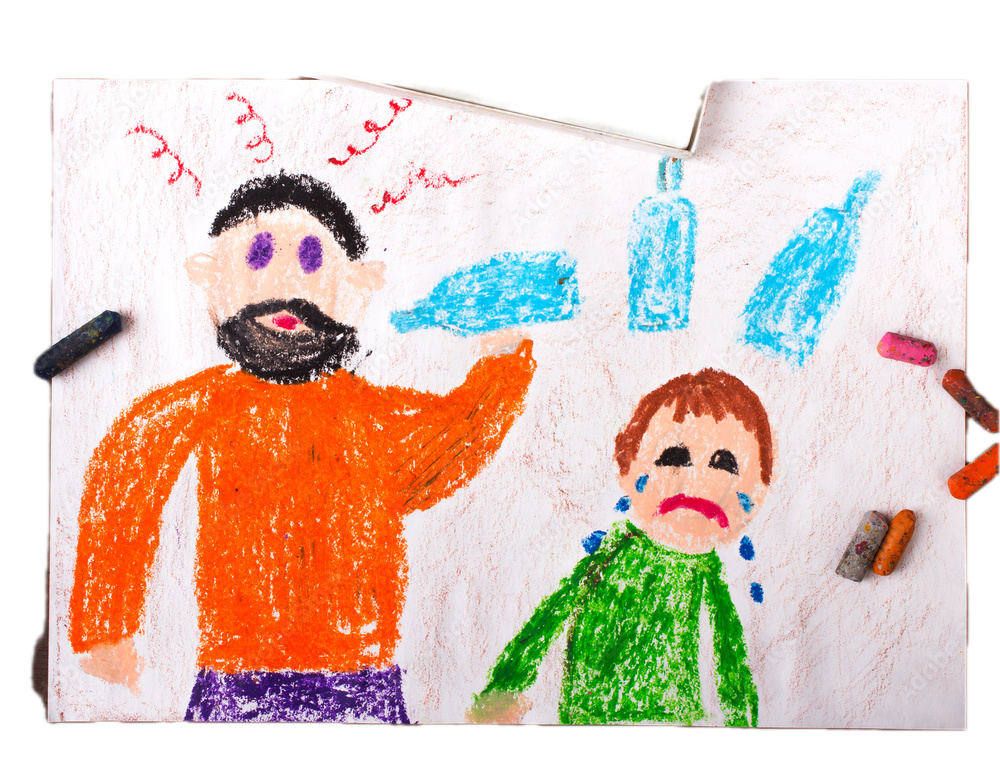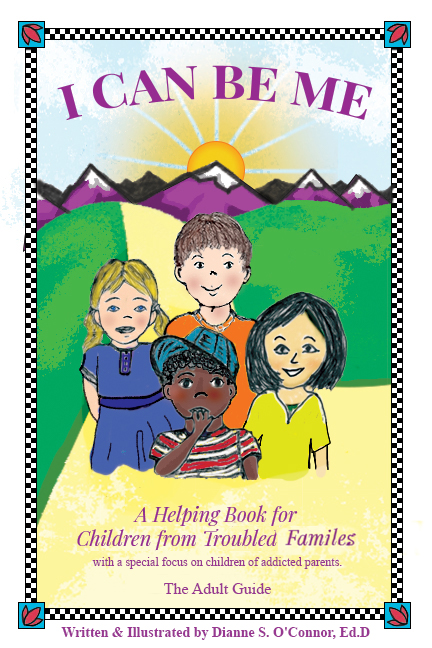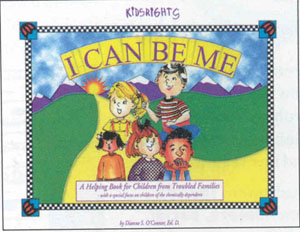Alcohol and Family Problems

Is Alcoholism A Problem in Your Family?
Do You Worry About The Affects
On A Child?
Alcohol and family problems go hand in hand.
Alcohol addiction (alcohol substance use disorder-AUD) is deemed the most
common form of addiction. It is a number one health problem with its
destructive effects spreading beyond the addicted
individual to include not only the larger society but also
family members including
the youngest of children.
Children whose parents suffer from a substance use disorder (SUD), including an alcohol use disorder (AUD) are children at risk. The stressors within the family that intersect with AUDs, and other SUDs in a parent create risks for children growing up in these families. These include risks, when compared to children whose parents who do not suffer from a SUD, for developing a range of cognitive, psychosocial, learning, behavioral and emotional concerns. They may show increased risk for developing various disorders such as anxiety and/or depression, antisocial personality disorders and relationship difficulties. Children with parents who suffer from an AUD are 4 times more likely to develop an AUD, than children who grow up in families where an AUD is not a problem.
If alcohol and family problems, or a family member's addiction to other drugs are a concern in your family, it is important to intervene early and take preventative steps to help the children growing up in these often troubled families. Otherwise the psychological concerns they exhibit may escalate and become more difficult to reverse and deal with. Unless we help these children now, the psychological risks they face can follow them into adulthood.
It is essential that parents, caring adults and helping professionals focus on the plight of these children. They must develop an awareness of their issues and the strategies and skills to help them.
Alcohol and Family Problems?
A Psycholological Assessment Can Help

Are you worried about a child who is growing up in a family where parental addiction is a problem? Is he or she showing signs of psychological distress, such as learning, behavioral and/or social and emotional concerns?
Dr. O'Connor provides in depth, comprehensive school neurpsychological assessments to get to "the root of the problem."
The school neuropsychological assessment provides a detailed, comprehensive understanding of the problem. It leads to diagnoses that apply to the problem and provides the foundation required to support evidence based interventions to address it. Without a comprehensive assessment to provide this understanding and what is contributing to and maintaining the psychological concerns that worry you will be difficult to address.
The assessment becomes part of the solution; its findings lead to evidence based interventions to address the psychological concerns in a young person that worry you.
Learn how a young person is doing when a family member suffers from alcoholism, and/or other substance use disorders. Where are things going well? Where do you need to intervene to help? What kind of strategies can reduce the risks for these children?
Assess how a child is doing when alcohol and family problems affect your family. Use this information to develop strategies to help children of addicted parents and reduce the risks they face.
These negative effects are not tied solely to AUDs, or other SUDs, but are also associated with various adverse childhood experiences that intersect with AUDs.
There are also protective factors that can reduce or eliminate the
risks these children might otherwise face. Not all of these children
will show detrimental effects. Some will show resilience and
healthy coping strategies to deal with the challenges and stressors in
their lives.
Nevertheless, children of addicted parents, regardless of the substance use disorder, are children at risk. They are more likely to develop Substance Use Disorders (SUDs) than children of non-addicted parents. They are also at risk, as noted above, for developing various other psychological mental-health concerns.
Great numbers of these children exist. One in eight children (8.7 million) in the United States under the age of seventeen lives with at least one parent who suffers from a SUD disorder. One in ten children (7.5 million) live in a household with at least one parent with an AUD. They are more likely than children who do not grow up in families where alcoholism is a problem to develop an AUD.
Hence, these children are at risk of perpetuating the inter-generational cycle of alcoholism in their own lives.
"I CAN BE ME" CAN HELP

Dr. O'Connor is the author of I Can Be Me-A Helping Book for Children from Troubled Families. I Can Be Me includes a special focus on children of addicted parents, and also supports children who are experiencing other adverse childhood experiences.
I CAN BE ME supports mental health professionals, other helping professionals and parents who want to help children of alcoholic and drug addicted parents. Although I Can Be Me addresses family problems from the perspective of children whose parents and/or other family members are addicted, this book also supports children who are experiencing other family problems.
There are two versions of I Can Be Me, one a work book version for children aged 4 to 6, the other is for young people aged 7 to 12. These two versions of the book contain similar content, but differ in the presentation of the content.
Both versions of I CAN BE ME include a section at the beginning of the book for mental health professionals, parents and other helping adults who want to support children of addicted family members. This section provides the rationale that underlies their need for support, and outlines how to use the book to help children of addicted family members, as well as children who are experiencing other family problems.

The Children's Work Book for children aged aged 4 to 6 also serves as a colouring book and provides children with the therapeutic value that colouring offers, as well as the psychoeducational benefits of I Can Be Me. Colouring can help reduce stress and anxiety, improve focus and promote mindfulness, help calm the brain and relax the body.
Dr. O'Connor is currently updating both versions of this book.
Indicate your interest in I Can Be Me.
Dr. O'Connor will contact you and let you know when it is available for sale.
Resources Used On This Page: